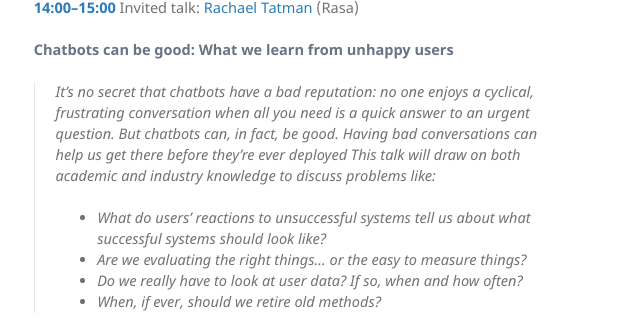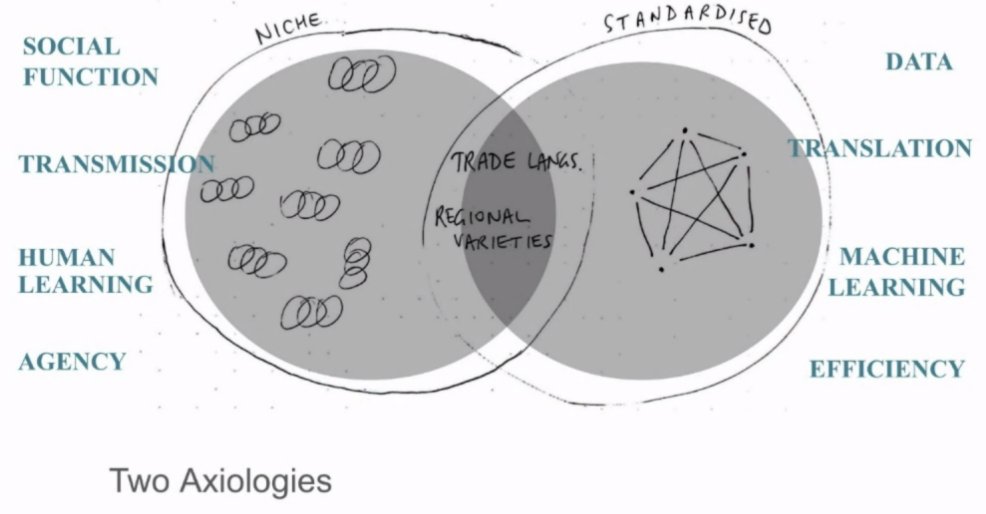
#EMNLP2021 ends, but the Insights for Negative Results are coming tomorrow! The workshop is hybrid: virtual posters, talks by/for a mix of on-site & online speakers & attendees. Hosts: @JoaoSedoc @shabnamt1 @arumshisky @annargrs
Really proud of the program this year🧵:
Really proud of the program this year🧵:
8:45 Opening remarks
9:00 🗣️ Invited talk by Bonnie Webber: The Reviewers & the Reviewed: Institutional Memory & Institutional Incentives
9:00 🗣️ Invited talk by Bonnie Webber: The Reviewers & the Reviewed: Institutional Memory & Institutional Incentives

11:30 🗣️ Invited talk by @zacharylipton: Some Results on Label Shift & Label Noise 

14:00 🗣️ Invited talk by @rctatman: Chatbots can be good: What we learn from unhappy users 

17:00 🗣️ Invited talk by @nlpnoah: What Makes a Result Negative? 

The zoom link for the invited talks and oral sessions is on the underline page. But that page is fairly useless as a schedule, so our program has direct links to all pre-recorded underline videos AND papers on aclanthology.
insights-workshop.github.io/2021/program/
insights-workshop.github.io/2021/program/
Also, exciting news: this year Insights will have a best negative result paper award 🏆! The winner will be announced tomorrow, stay tuned.
• • •
Missing some Tweet in this thread? You can try to
force a refresh













